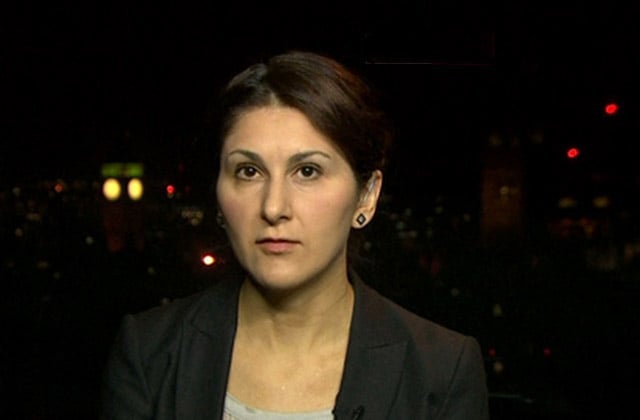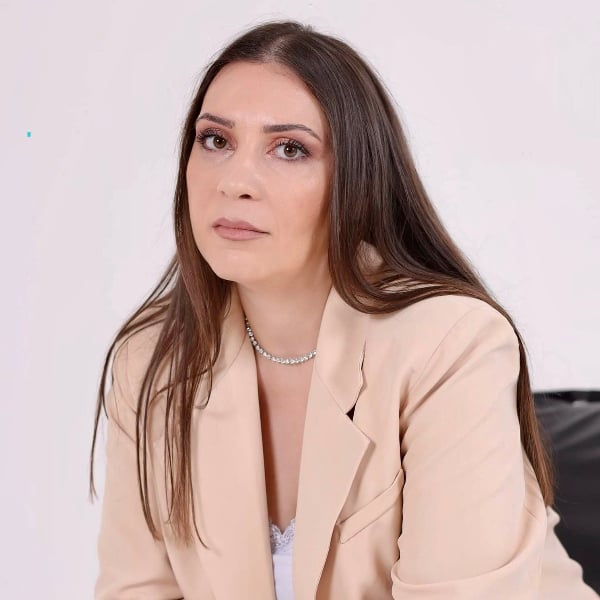
The Armenian media has extensively covered the debates regarding the country’s potential withdrawal from the Collective Security Treaty Organization (CSTO), the strained relations with Russia, and the efforts to strengthen ties with the European Union. However, Lilit Grigoryan, an expert on Commonwealth of Independent States (CIS) matters, points out that while numerous opinions are expressed in the media, many are emotionally charged and lack substantial content.
We discussed with Lilit Grigoryan the prevalence of false agendas in the media, the role of destructive players, the Western experience, and decisions based on emotional evaluations.

Lilit Grigoryan
The Armenian press has debated whether to withdraw from the CSTO for a while, which has led to discussions about a potential shift in foreign policy. However, it is unclear whether the press is providing a thorough analysis of the possible consequences and risks or if emotional opinions dominate it.
The discussions around Armenia’s foreign policy seem more of an act than a real substantive discussion. This is done intentionally. There is a lot of noise about leaving CSTO, particularly in the opposition and government circles. However, there is no serious impulse behind these discussions. The so-called independent experts also contribute to the noise, and their role is primarily destructive.
How is their role destructive?
Some individuals claim to be independent experts but may not be impartial or knowledgeable. In Great Britain, for example, only those with a track record of accurate predictions and who do not engage in manipulation, extremism, hate speech, or misleading statements are presented as experts on important national issues.
The media is responsible for monitoring experts to ensure that only competent individuals are given a platform to express their opinions. The media is also responsible for shaping public opinion by providing a platform only to those who deserve it. Additionally, there should be a body responding to public complaints regarding any publication or program, but this seems almost absent in Armenia.
Journalists in the West often point out contradictions in the words of famous experts or officials during interviews since people may not remember what they said previously. However, this process is absent in Armenia due to the small market and narrow circle of people, which results in a culture of avoiding debate.
Additionally, experts in Armenia are not independent, and the media is aware of this. As a result, those given airtime on Public Television are typically pro-government, which is dangerous.
What are the consequences of not having a meaningful discussion?
The absence of meaningful discussions and the prevalence of propaganda prevents people from making informed decisions. As a result, the public’s response to challenges weakens, and their ability to resist diminishes. People start to live in a false sense of security, losing touch with reality and failing to recognize what is in their best interest. This is where hybrid warfare tactics come into play, as a vulnerable and easily controlled public is created. The hidden danger is that such a society can be manipulated by forces from within and outside.
When did pro-Westerners and pro-Russians become polarized in the press? When did this topic escalate?
In 2018, the media began to scrutinize Russia’s actions. During Serzh Sargsyan’s tenure, there were occasional expressions of concern regarding the fact that Russia, being Armenia’s strategic partner, was selling weapons to Azerbaijan. Although the government was able to manage the situation and keep it under control, moderate criticism persisted.
It is worth noting that discussions on important issues were constructive in the past because they were based on facts and real issues. However, nowadays, many discussions are not based on genuine topics but on artificial ones.
For example, before the discussions about leaving the CSTO (Collective Security Treaty Organization), there was another campaign in the media known as “Sorosism.” This campaign was also artificial. The opposition to the authorities was accused of being affiliated with Soros, which was untrue. The authorities have good relations with the Russian Federation, and no evidence suggests they are connected to Soros. This campaign did not help those who started it; instead, it worked in favor of Nikol Pashinyan, who was presented as a strong pro-Western leader, to justify the connection with Soros. It is important to have genuine discussions based on facts and real issues rather than artificial ones based on false claims.
Yes, there were activists in Nikol Pashinyan’s team who cooperated with the Soros Foundation. However, they developed close relations with the Russian side after coming to power. It’s worth noting that members of the opposition and the media have also received funding from this foundation.
It was at this point, that the false division into pro-Western and pro-Russian groups emerged.
Who were behind that campaign?
It was observed that the opposition aimed to regain power by projecting Nikol Pashinyan as a pro-Western leader. In doing so, they intended to gain Russia’s support and assistance. However, the ruling authorities took advantage of this campaign and started to campaign against pro-Russian groups who were vying for power rather than against Russia itself. Notably, Sorosism was excluded from media discussions as it was artificial and fictitious.
Is the topic of leaving CSTO also artificial?
The pro-government media use the CSTO theme to address internal public issues, although it is a foreign policy matter.
When Azerbaijani forces entered Jermuk, Armenia suffered significant casualties and territorial losses. The people of Armenia expected their authorities to take concrete actions. Still, the authorities raised the issue of inaction by the Collective Security Treaty Organization (CSTO) and placed the responsibility entirely on them. The propaganda machine then shifted all the responsibility to the CSTO, and instead of questioning membership, the well-known thesis that the CSTO left Armenia began to circulate.
The argument that the country did not leave the structure, but the structure left them, is viewed as a political trick to influence the public. International relations prefer concreteness, where a country is either a full member or not. While countries like France and Turkey may have complaints about NATO, they are still considered full members. The reason behind Armenia’s semi-membership status remains incomprehensible.
Could the public choose the wrong foreign policy course due to all this?
Of course, emotional assessments can be dangerous because people tend to make impulsive decisions based on them. The real risks and consequences may only become apparent after it’s too late to turn back. As a result, people feel cheated and disappointed.
The purpose of psychological operations is to overwhelm individuals with both true and false information to the point where they are unable to analyze and assimilate it all. Propaganda machines create the illusion that an issue is being widely discussed. Still, individuals may struggle to distinguish between what is propaganda and what is real, causing them to disconnect from the discussion. When there are too many sources of information, people may run away from it all.
Who is involved in the information war?
The following message should be taken into consideration by everyone, including the authorities, opposition, Russia, Azerbaijan, and the Armenian people. In expert evaluations, analyses, and comments, the Armenian interest should be given priority. Otherwise, it can be considered propaganda. The media should filter all information to ensure readers are free from conspiracy theories.
Maintaining media hygiene and having media sanitation workers filter out sensationalist content is essential. Unfortunately, the media is becoming more extremist, and balanced speech is often considered boring. As a result, hate speech and blasphemy are being circulated because they attract viewers. We need to phase out sensationalist content to prevent degradation.
Isn’t that an institutional issue?
Yes, partially. In certain countries with a political and business elite, the media sometimes resorts to sensationalism to boost sales. However, these elites do not rely on the media for their analyses and forecasts. Instead, they have teams and centers that assess the situation and present their research to politicians. Based on this information, the decision-makers form their opinions and make their assessments. Extreme and vulgar thoughts expressed in the media do not sway the opinions of these decision-makers.
In Armenia, there is no established institutional decision-making mechanism. Therefore, the media’s bad behavior has a more significant impact on the country’s security. The media has the power to influence the public, government, and opposition. Since there is no well-established state, the press is also not well-established, making it vulnerable to all. There is no reliable media platform that promotes public discourse which can hold officials and experts accountable for misleading the public.


Add new comment
Comments by Media.am readers become public after moderation. We urge our readers not to leave anonymous comments. It’s always nice to know with whom one is speaking.
We do not publish comments that contain profanities, non-normative lexicon, personal attacks or threats. We do not publish comments that spread hate.